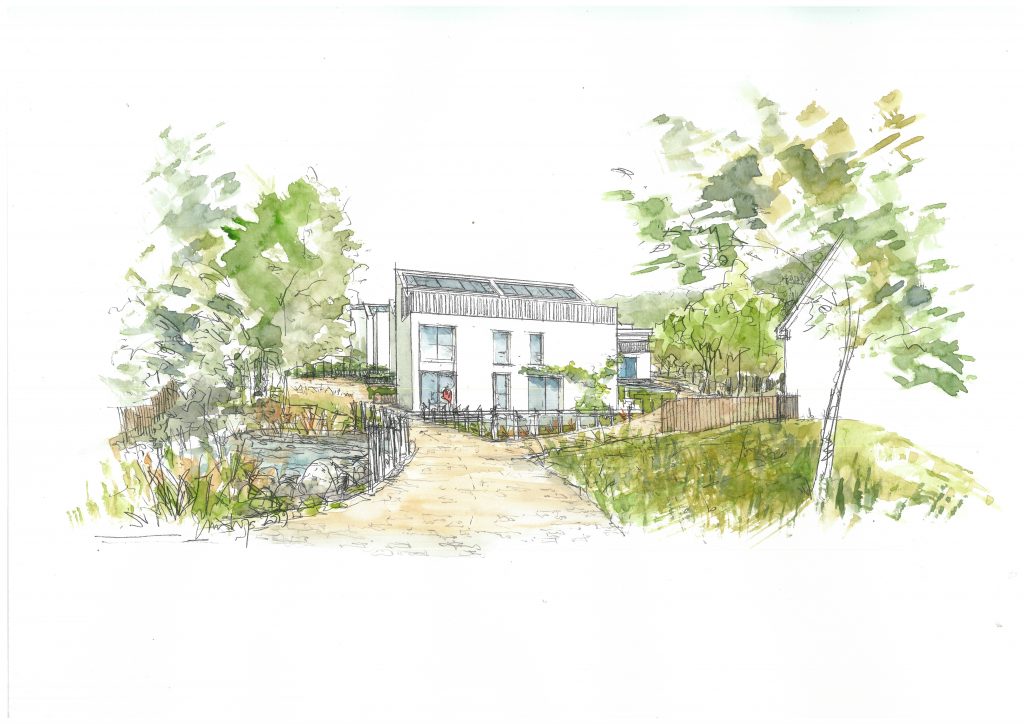Andy Sutton argues that society needs to start placing value on decarbonisation
The Welsh Government Advisory Group’s recent Better Homes. Better Wales. Better World report served as a timely reminder of the pressing need for improving the energy credentials of homes to become the norm.
Wales has some of the highest fuel poverty figures in the UK. The report’s recommendation that, by 2050, every Welsh home should be upgraded to Energy Performance Certificate A, or as close as possible, is a bold but necessary call.
The report also states that social housing and those in fuel poverty should be prioritised over the next 10 years, and advocated other longer-term measures to tackle the remaining 80% of Welsh housing that is privately owned.
Though broadly welcomed as an important first step, the report could have gone further and sought to tackle the current financial and market challenges to decarbonisation which arise from the disconnect between energy and value.
We all understand the huge challenges we face to transform our lifestyles into those more aligned to decelerating climate change. An increasing number of us are voting, protesting or otherwise acting to support this transformation.
However, in a western democracy, ultimately, consumers’ money is their real vote, and how they choose to spend it is the clearest indicator of their attitudes and values. This represents both the biggest opportunity and the greatest challenge we face, societally, in energy markets, and in the construction and conversion of our homes.
Despite ongoing research and increasing evidence, homebuyers still generally place little or no sales value on a home that will cost less to run, as can broadly be indicated by its Energy Performance Certificate (EPC).
In fact, the most recent evidence from the Royal Institute of Chartered Surveyors in March 2019 suggests a small but increasing number of homebuyers are actually more inclined to try and pay less for a home with a poor energy performance, than they are to pay more for one with a good performance.
That said, this consumer behaviour does hint at an important difference emerging between the value of a low energy home versus the value of a high energy home.
Whether we achieve a housing market that devalues poorly performing properties, improves values for high performance homes, or blends the two, we have no other viable choice but to strive for this value to be differentiated.
Clearly, there are not enough public funds to achieve this transition in Wales, or indeed anywhere, through grants and subsidy alone. As a society, we must therefore begin to truly act as though “we get what we pay for” in our perception and valuation of low energy homes.
Such behavioural change, from the market up, will quickly see mainstream housebuilders move from delivering bare minimum levels of compliance for new homes to pushing the low energy message. They are, after all, commercially minded, and if the better margin lies in low energy, they will switch to delivering it surprisingly quickly.
Of course, the benefit goes beyond new homes. A higher price for a low energy home will also enable and drive the retrofit and refurbishment markets, incentivising homeowners to undertake suitable improvements while simultaneously making finance more readily available to fund these works.
This financial consequence also scales up, with development finance and long-term investors also being able to respond with greater scale and capacity once the monetary value of an energy efficient home is recognised.
For our homes, our most pressing priority must therefore be to achieve sales and rental prices that reflect how close to zero carbon those homes are. While there is a big role for government to drive this, and the valuation and financial sectors to proactively identify and react, there is also a role for us, as consumers.
We must adopt a shift in mindset so that, as renters and buyers, we insist on paying less for high energy homes, and more for those that are low energy. Industry and government must play their part in supporting this attitudinal shift by striving to better educate consumers on decarbonisation, providing greater clarity and information.
Finally, both society and government will also need to be mindful of those who may be caught out by a rapid change in property values. Some homes will not be able to be low energy, therefore some communities will need adequate support to enable them to adapt.
We must not lose our cherished built heritage or our societal compassion whilst we tackle this self-inflicted threat.
All articles published on Click on Wales are subject to IWA’s disclaimer.
Photo provided by Loyn and Co of the proposed zero carbon Parc Hadau development in Pontardawe.





